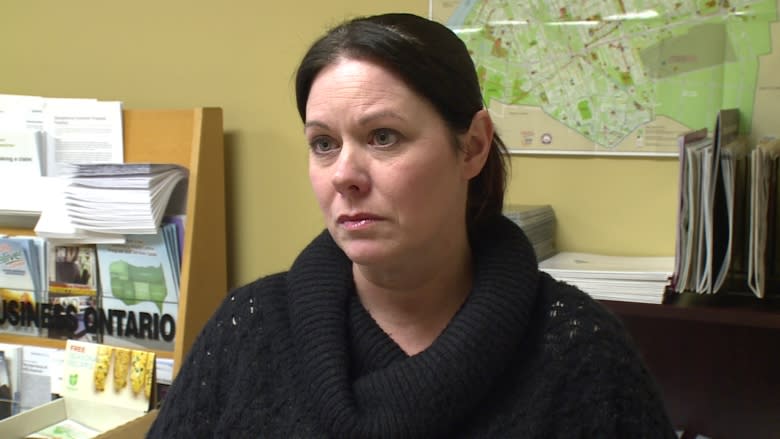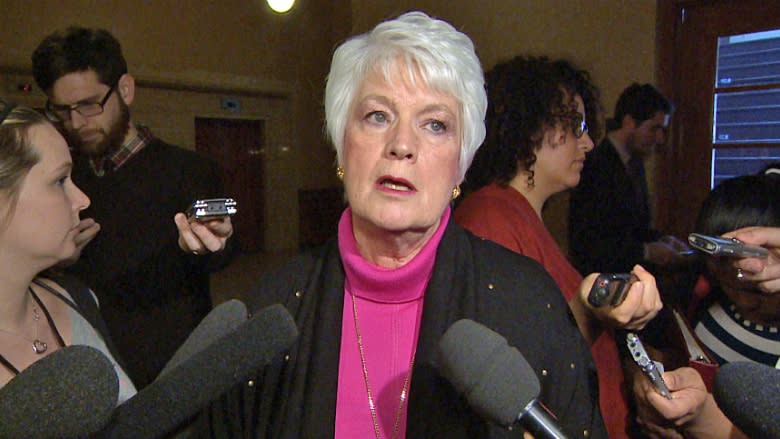Liz Sandals won't rule out closing provincial schools for disabled and deaf
Kathleen Wynne's government is refusing to rule out closing as many as five provincial schools for students who are deaf or have severe learning disabilities.
The Education Ministry has put a stop to new applications to attend Centre Jules-Léger in Ottawa, the Trillium, Amethyst and Sagonaska demonstration schools in Milton, London and Belleville respectively, and the Robarts School for the Deaf in London.
Education Minister Liz Sandals refused to promise to keep the schools open when asked directly three times in Question Period on Thursday.
"What we're looking at is how do we provide the best special education for all children, that is my commitment," Sandals said. "The process that we are going through right now is a consultation. We are talking to parents and students, and no decisions have been made at this point."
But the decision to put new applications on hold has parents whose children attend the schools worried.
"All of this is swirling around them at the schools," said Katrina Elchami of Windsor, whose son Omar, 13, attends Amethyst. "You've got teachers who are worried about their jobs in September. It's affecting everybody."
School 'totally transformed my son'
Elchamidescribes Omar as "severely dyslexic" and said he couldn't read in Grade 5 in the Windsor school system. She says in just a year and a half at Amethyst, he has started reading at the Grade 7 level, and his self-confidence has soared.
"it's a total transformation for him," she said in a phone interview. "It's changed his whole demeanour. He advocates for himself and he will go into life and will be a leader amongst the community."
Students can attend Amethyst for a maximum of two years so Omar won't be returning in September but his mother says the concern over a possible closure is affecting him anyway.
"He's worried about future children," she said. "And you can talk to any kid up there, they're going to say 'I'm not worried about me, I'm worried about the people after me.' It's made that much difference to them."
Elchami said severely dyslexic children can't get the same level of support from the regular school system as the demonstration schools. "They can just learn so much better and they blossom, and they just thrive there," she said.
'Inundated' with e-mails from parents
In the legislature on Thursday, Todd Smith, Progressive Conservative MPP for Belleville, told Sandals that parents are "worried that you're going to force their kids into programs and schools that aren't equipped to serve their special needs."
"My office has been inundated with e-mails from parents wondering why specialized demonstration schools are being told not to let any more children in, if the government is only consulting," added NDP Education Critic Lisa Gretzky.
The Education Ministry website says the consultation on the provincial schools will "explore ways, in the face of declining enrolment, to provide a range of quality programs and services that best meet the needs of students and families."
A total of 153 students currently attend the four demonstration schools, all of which opened between 1979 and 1982. Eighteen students are enrolled at the Robarts School for the Deaf, which opened in 1974.
In 2012, the Drummond report on reforming Ontario's public services and cutting costs recommended closing the demonstration schools, and using the savings to fund programs for learning-disabled kids within the main school system. It also recommended consolidating the province's three schools for the deaf on one site.
The government is asking for input on the schools until April 8. The Drury and Whitney schools for the deaf in Milton and Belleville, and the W. Ross Macdonald school for the blind and deafblind in Brantford are not under review.



